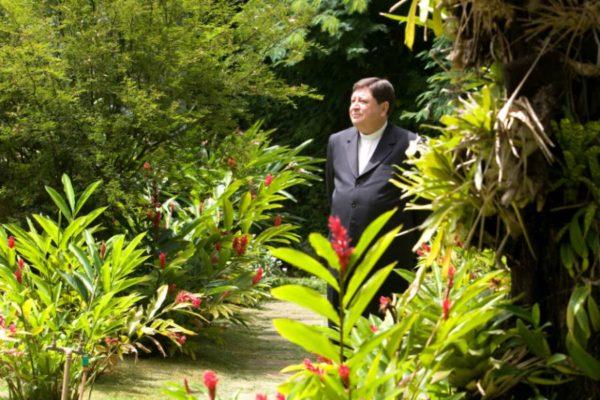
This article was sent to the Gaudium Press editorial staff by a lawyer who has known the Heralds of the Gospel for many years. Given the recent developments, we gladly publish it.
Newsroom (September 15, 2021 2:35 PM Gaudium Press) Following the massive publicity surrounding the decree of Cardinal Braz de Aviz on June 22, 2021, forbidding minors from residing at the Heralds of the Gospel schools, the Catholic World was greatly perplexed.
At the same time, I was wondering whether the Heralds of the Gospel would write a matching response. In fact, I learned that they have already appealed to the Congregation headed by the Brazilian Cardinal. The Heralds have offered solid canonical and juridical arguments against the decision. However, the chances of this action having any effect are minimal. The recent history of Braz de Aviz’s hostility towards the Association – and also towards many others – confirms my point. So, what to do next?
It seems quite obvious that the Code of Canon Law has been collecting dust in the Cardinal’s library.
Therefore, I have recourse to a gift with which Nature has endowed most of humanity: reason. Providing, of course, that the gift of reason is not collecting dust in anyone’s library.
In this sense, I would propose the Heralds write a letter to the Cardinal with the same greeting inserted in the title of this article, based on the famous aphorism by G. K. Chesterton: “We shall soon be in a world in which a man may be howled down for saying that two and two make four, in which furious party cries will be raised against anybody who says that cows have horns, in which people will persecute the heresy of calling a triangle a three-sided figure, and hang a man for maddening the mob with the news that grass is green.”
So, let us prove the news that the grass is green…
***
First of all, the Cardinal’s decree claims to be based on “information” and “numerous communications”. This is odd. What does he mean by “numerous communications“? Why, then, are the more than 2500 signatures of parents, (i.e. the legitimate guardians of the minors,[1]) contained in the voluminous petition sent to the Cardinal not taken into account? The whole of the parents of the students is in TOTAL agreement with their attendance at the schools of the Association; otherwise, they would withdraw them. At least we can admit the truth that the grass is green.
Furthermore, the decree states that the “families of origin” (sic: is there such a thing as a family of destination?) are “in most cases excluded from the lives of their children, and that contacts with their parents are not sufficiently guaranteed.” It is interesting to note that the decree considers families as excluded from the lives of their children and not the other way around. In other words, the Association itself would be excluding families from their children, as if the children had been taken away from their parents! If this is so, then we are facing an unprecedented case in History: the mass kidnapping of hundreds of teenagers!
As Shakespeare puts it, ‘Something is Rotten in the State of Denmark’, since the same Cardinal joined the minor seminary of the Pontifical Institute of Foreign Missions (PIME) in Assisi (SP) when he was only 11 years old, as his family lived far away (in Paraná). Would this also be considered family exclusion…? And would the PIME priests also be considered “rigid”? All I know is that even for them the news is still true: the grass is green.
Besides, the decree considers that the “type of discipline” would be “excessively rigid.” But how can an association itself be rigid without indicating those responsible? As they say in Law, a car does not run over anyone; it is the driver who runs someone over.
And all this for what purpose? To “allow the youngest the indispensable relationship with their families and with the aim of preventing any situation that could favor possible abuses of conscience and plagiarism against minors.” Well, once again, a generic accusation, because in any self-respecting legal system, only a real person can abuse the conscience of another. At least in countries where the grass is green…
What about the issue of plagiarism? As far as I know, “plagiarism” means “to steal and pass off (the ideas or words of another) as one’s own : use (another’s production) without crediting the source” (Merriam-Webster). Finally, it seems that this is a poor translation of the Italian term “plagio“, meaning something like “submission of others to one’s own power.” Now, Italian Law dealing with the topic was last promulgated by the fascist government and declared unconstitutional by the Italian Supreme Court in 1981.
This is yet another artistic license of the prelate: punishing an eventual future crime. Based on common sense, treatment cannot be harsher than the fear of an illness. It would be like a town Mayor closing all the bars in his city because some citizens possibly may get drunk… or like a bishop closing all the churches in his diocese because he heard that there are corrupt priests (with concubines and children, for example). I don’t know if Braz de Aviz effectively took any concrete steps in similar regards while serving at his prior dioceses. In any case: who are these supposed abusers of conscience in the Heralds? For if the grass is green, the colour green does also exist, doesn’t it?
Additional questions also arise: How could the relationship with the parents be considered “indispensable” in cases when the youths punished by the decree might be orphans? What if the family is not able to take them back? What if the family is in vulnerable conditions? What if there is no possibility of returning to their home country? What if the parents do not want to bring the child home? Will Braz de Aviz even venture into individual family management? If so, I suggest the parents ask him to assist in the payment of expenses involved.
What is evident by now is that the Cardinal’s formulation is so hypothetical (and so erratic) – “may favor possible…” – that the punishment is utterly disproportionate to the alleged crime. Not to mention the strictly legal aspects of the matter, such as the due process of Law, the adversarial procedure, and the presumption of innocence, noting that the Brazilian legal system is in deep accordance with Canon Law. Hello, hello, Vatican canonists and the National Conference of Brazilian Bishops (CNBB); where are you? Is grass still green in Brazil?
Furthermore, the Cardinal affirms that “all minors admitted in any capacity to the private Association of (sic) Heralds of the Gospel […], at the end of the current school year should return to live with their families and be entrusted to their respective parents. The question here is: how can a minor be admitted to the Heralds, if the Statutes of the Heralds do not provide for the admission of minors? In other words, minors are not even Heralds! It would be akin to the Cardinal wanting to meddle in the line-up of the Brazilian National soccer team… but he can’t, because the soccer field they play on is green!
Finally, the decree published in June orders the minors to be deported by the end of the school year, that is, in December. How then can the Congregation allow the alleged abuses to continue taking place for an entire semester? If the abuses are real, this would be unparalleled negligence on the part of the Cardinal… and if so, possibly punishable by the Judicial system. Am I wrong?
In short, let us spare the reader, because much, much more could be said about the harmlessness of the libel. We can deal with this in another article. As a lawyer, I can only say that, in the sphere of Positive Law, a colleague would rub his hands in anticipation over such a case. As long as grass continues to be green, of course.
Marco Antonio Machado, Lawyer
Rio de Janeiro, Brazil
_______________
[1] Cfr. art 227 and 229 form the Brazilian Federal Constitution; c/c arts 1630 to 1634 Brazilian Code of Civil Law; Code of Canon Law, can. 226, § 2; can. 793, § 1; can. 1136.




































